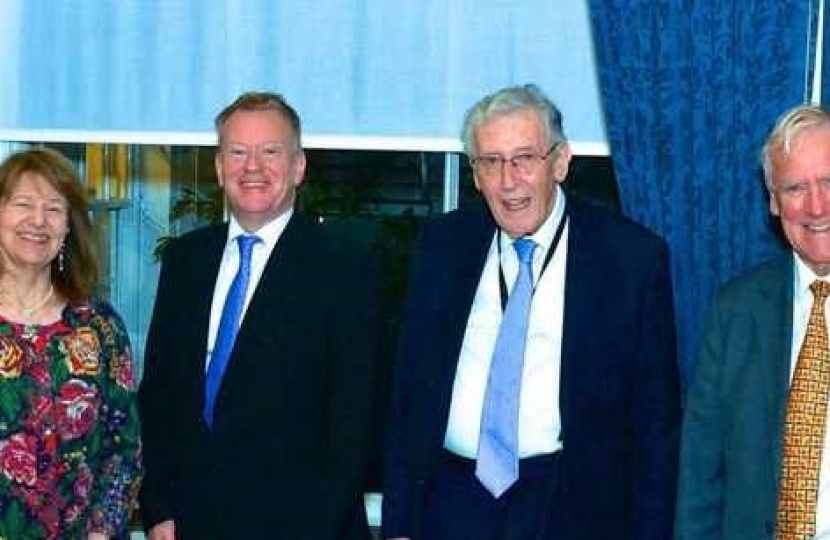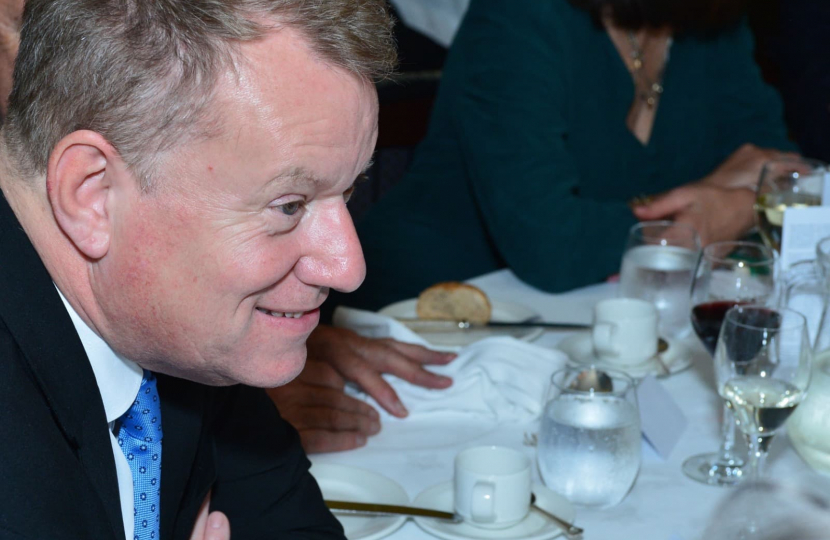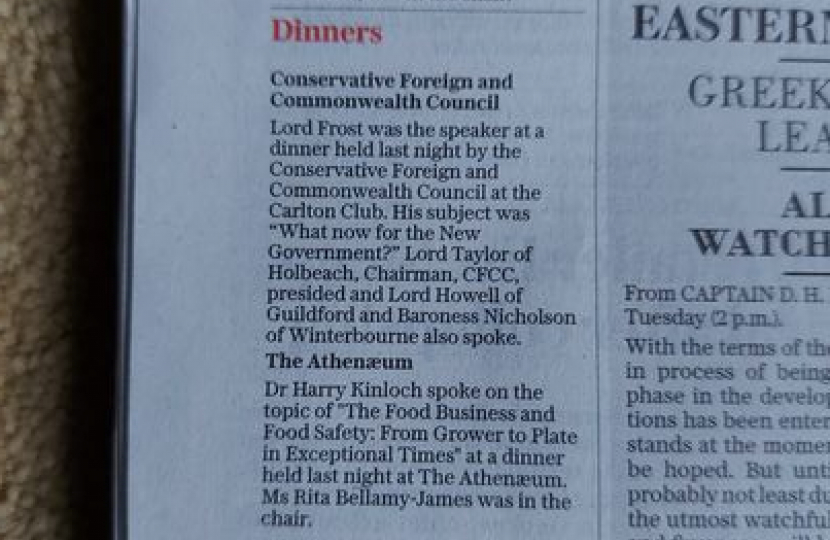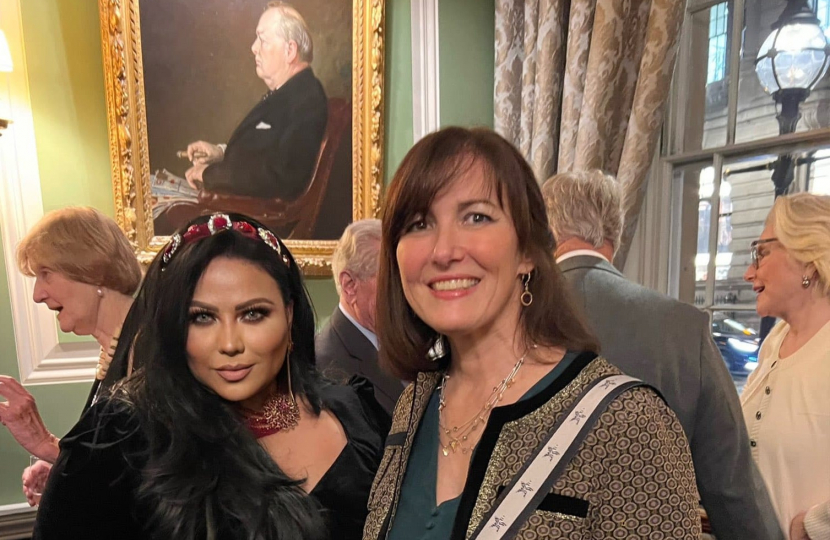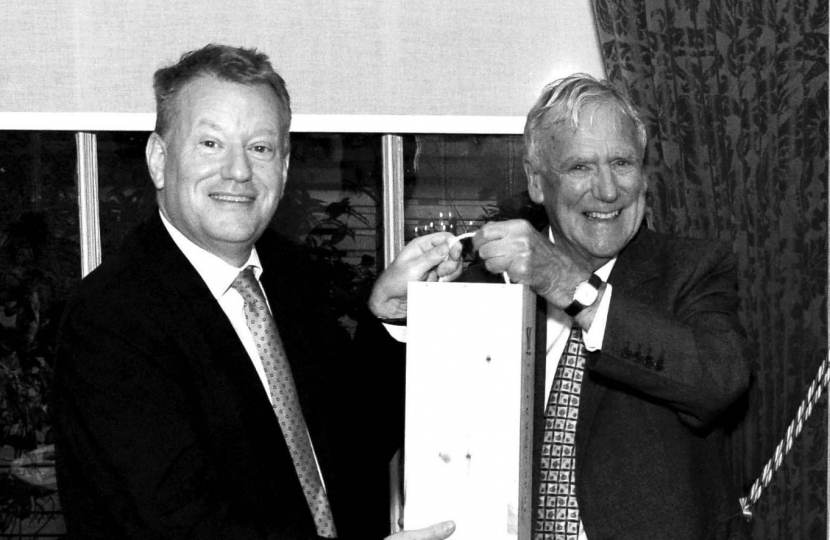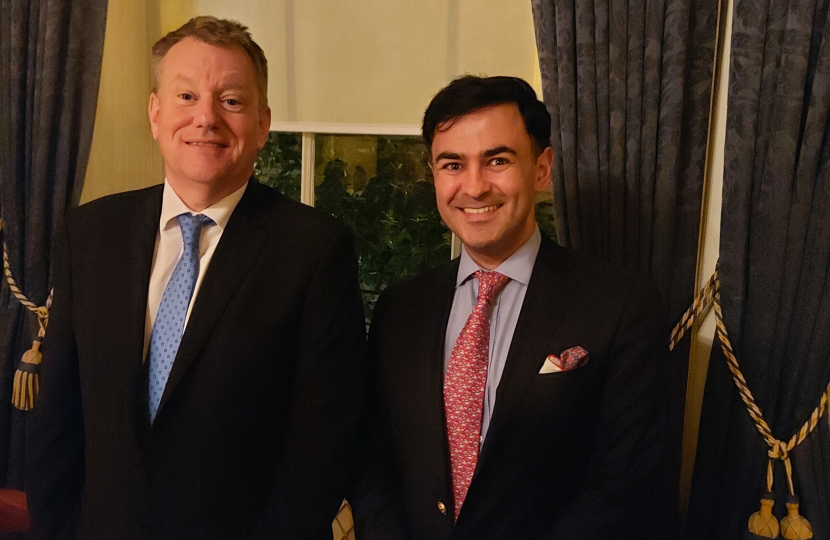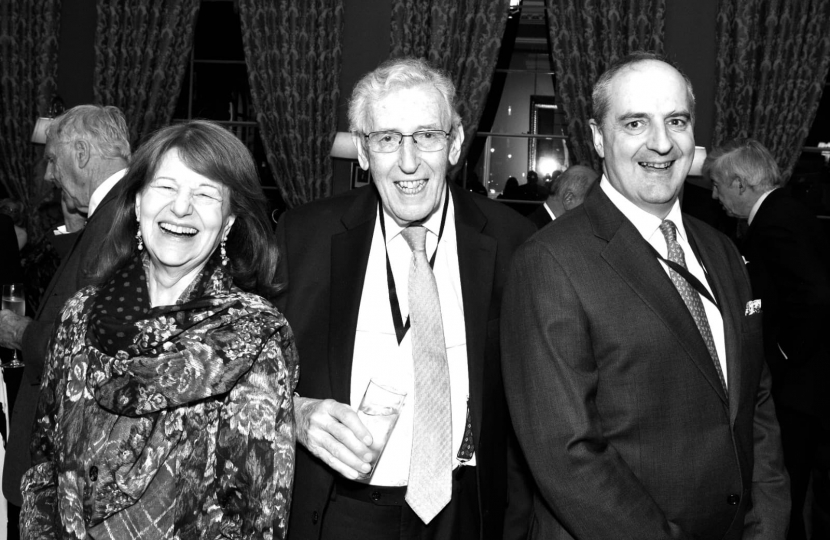The CFFC held a well-attended talk at the Carlton Club on Monday 17th October. Rt Hon Lord Taylor of Holbeach, Chairman of the CFFC presided and introduced Rt Hon Lord Howell of Guildford, CFCC’s President, and the guest speaker for the evening, Rt Hon Lord Frost of Allenton CMG. In his opening remarks Lord Howell referred to a book by John Hoskyns entitled ‘Just In Time’ which described the stepping stones necessary for reaching a vision - the direction to take for which there is no straight line together with the purpose. Hoskyns’ book was an apt way to introduce Lord Frost who had recently written an essay inspired by Hoskyns’ book setting out his own vision and the steps in which to reach it.
Lord Frost began his talk by noting that, while democracies would never have completely consistent foreign policies, a Conservative foreign policy should at least have clear thinking and agreed principles. We had lost our way over the last decade or two and at times risked falling into a foreign policy that was about making us feel good rather than about achieving outcomes. The aims should be to have an accurate picture of the world, to maintain the security of our own country, to support friends throughout the world, and to maintain institutions capable of doing all this.
The 2021 Integrated Review had begun this process, acknowledging the reality of great power competition, and thereby accepting there were goals additional to just preserving the rules-based international system. It also set out the proposed revamp of armed forces, extra defence spending, cyber, and put emphasis on global alliances - NATO, AUKUS, alliances in Gulf, the Indo Pacific tilt. The merger of the FCO and DFID was the beginning of necessary institutional reform, though there was a strong case to include DIT in this too. The priorities for the next Conservative government should be Ukraine – strong support for Ukraine while recognising the importance of avoiding further escalation, including inadvertently; a stronger policy on China; and a fully thought-out strategy on Europe.
In terms of getting our institutions right, Lord Frost argued that the FCDO was still less than the sum of its parts. It had lost expertise and its ‘esprit de corps’ over time. He suggested more political ambassadors were needed, more ministers and envoys to manage the many relationships, and increased focus on excellence.
In terms of how others saw us, as the problems associated with the Brexit process faded, we needed as a country to present ourselves with more confidence and less defensively.
Lord Frost was then invited to address a wide range of questions from those attending. He did not believe the evidence supported the proposition that the economy has declined post-Brexit. Our trade agreements needed to go far beyond Europe. With regard to Northern Ireland, it would be best to find an agreed settlement if at all possible. We should aim to restrict the ambitions of China within friendly countries.
In answer to a question on restricting aid where it is being wasted, he suggested that the OECD definition of overseas aid had a distortive effect and prevented the best use of aid money. He had good words to say about the Commonwealth, as a network of friendly countries where common law prevails, while realistic about the expectations for what the institution could do: he noted it was important for commentators to remember that the Commonwealth was not run by the UK but was a collaborative organisation of its membership. In conclusion, he felt that many of the problems in the world were a consequence of a collectivist approach which needed to be challenged more.
Having called a halt to the questions, Lord Taylor asked Lord Howell to propose the vote of thanks.
Lord Howell added that with regard to the Commonwealth, it should be noted that as a voluntary association based on rule of law and associated principles, it had been steadily growing with more and more countries wanting to join. It had recently extended from 54 countries to 56 and a further five nations had expressed a wish to join. A number of small nation states had been strongly courted by China for multiple reasons. The Commonwealth by contrast provided them with an umbrella of good practice. Commonwealth countries are predominately Republics, a fact not often appreciated by media reporting.
This excellent evening was organised as usual by Melissa Crawshay- Williams .
Rt Hon Lord Frost of Allenton Biographical Details
David Frost, the Rt Hon Lord Frost of Allenton CMG, is a Senior Fellow at Policy Exchange, a columnist for The Daily Telegraph, and a member of the Advisory Council of the Free Speech Union. He takes the Conservative whip in the House of Lords. He was Chief Negotiator and Europe adviser to Prime Minister Boris Johnson (2019-21) and then Cabinet Minister responsible for EU relations (2021). He led the negotiations which broke the political deadlock over Brexit, finally took the UK out of the EU, and put in place the world’s broadest free trade agreement. He began the work of post-Brexit reform and of dealing with the problems of the Northern Ireland Protocol, but left the Government over broader policy differences in December 2021. He spent most of his earlier life as a professional diplomat, notably as British Ambassador to Denmark, Europe Director and head of Policy Planning in the Foreign Office, and Britain’s chief trade negotiator and member of the EU’s Trade Policy Committee. He also has trade experience outside Government as CEO of one of the UK’s biggest trade associations, the Scotch Whisky Association (2013-16).

